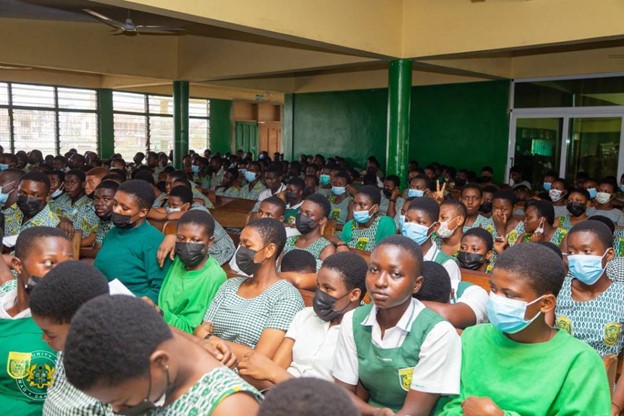The Cyber Security Authority (CSA) is set to develop a set of comprehensive guidelines for parents and educators aimed at equipping them with the necessary skills to protect children online.
The guidelines will provide practical advice, resources and knowledge to empower adults in their role as guardians and mentors, the CSA stated in a statement to BFT to mark the Day of the African Child (DAC).
DAC is an annual commemoration celebrated on June 16th. Established in 1991 by the Assembly of Heads of State and Government of the Organisation of African Unity (OAU, now known as the AU), DAC recognises Africa’s youth and encourages deep reflection and commitment to addressing the numerous challenges faced by young people on the continent.
The theme for this year’s DAC is ‘The rights of the child in the digital environment’. Accentuating the need for guidelines, the CSA noted that in this modern digital landscape where children are increasingly connected to the online world it is essential to consider the digital environment’s impact on children in relation to the rights outlined in the African Charter on Rights and Welfare of the Child, as well as national laws.
“As Ghana celebrates the Day of the African Child today, the CSA calls on parents and caregivers to build their capacity to teach their children how to stay safe online and regulate the online activities of their children,” they stated, adding: “The CSA will also be developing guidelines for parents and educators to help them protect children online.
“Parents and guardians have a duty to provide guidance and direction in the exercise of these rights, having regard to the evolving capacities and best interests of the child,” the authority emphasised.
A report from UNICEF indicates that more than 13,000 images and videos of child sexual abuse were reportedly accessed or uploaded from Ghana in 2020. Furthermore, the report also explored instances of romance scams and the posting of explicit sexual content.
An ongoing national survey conducted by the Cyber Security Authority in selected Senior High Schools in the Greater Accra Region on the online habits, risks and vulnerabilities of students using the Internet has revealed that approximately 64.35% of students actively participate in social media platforms. A significant portion of these students reported receiving pornographic material in various formats, including images, text or videos.
Also, 55.90 percent of students had interacted with strangers they met online – highlighting the potential dangers of offline meetings. Additionally, the survey also recorded significant instances of romance scams and the posting of explicit sexual content.
Based on the survey findings, 20 percent of children engage in self-generated sexual images and videos by solicitation and/or coercion and share them with supposed intimate partners.
Against this backdrop, the CSA therefore believes that equipping parents and educators is vital in shaping children’s online experiences and equipping them with the necessary skills to navigate the digital realm safely.










